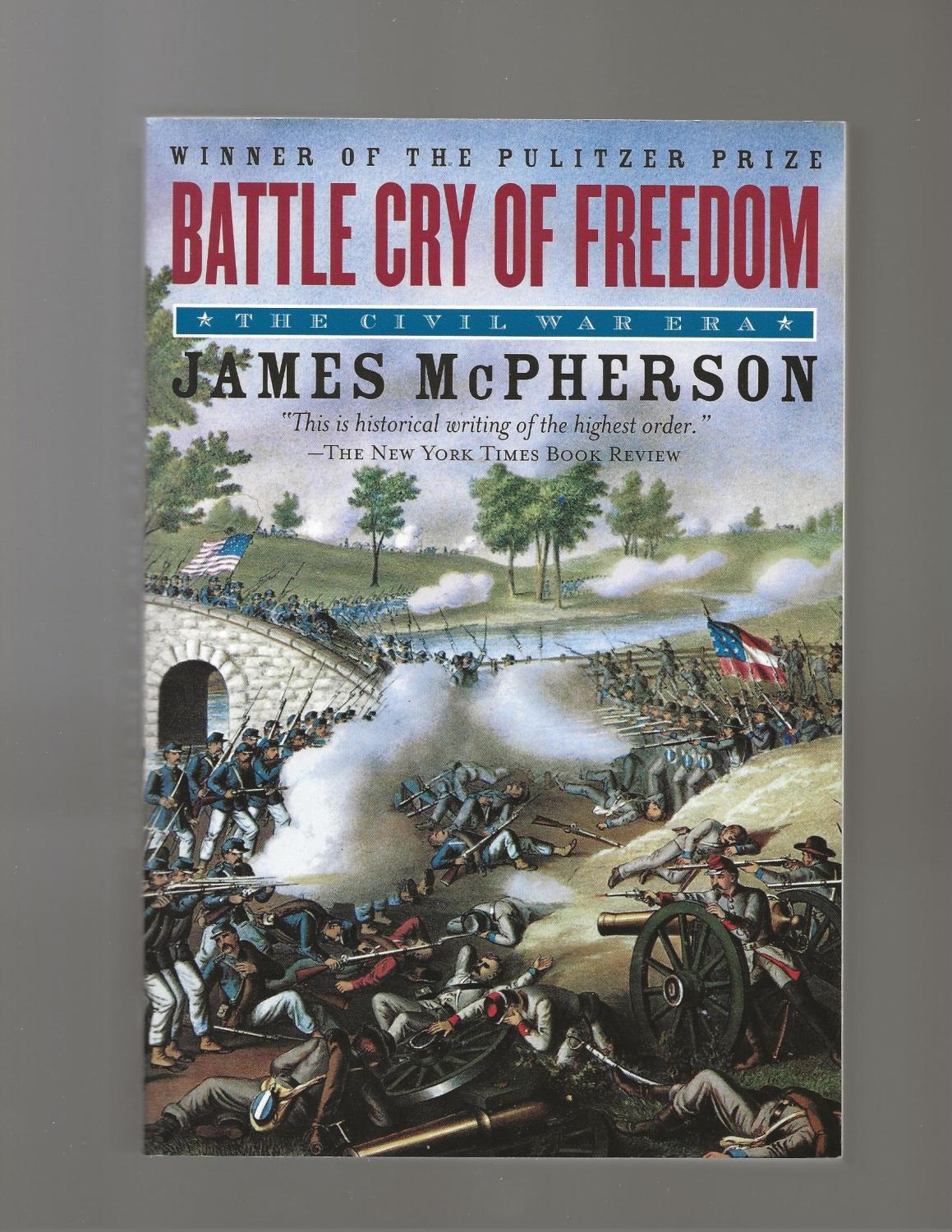


This authoritative volume makes sense of that vast and confusing "second American Revolution" we call the Civil War, a war that transformed a nation and expanded our heritage of liberty. This "new birth of freedom," as Lincoln called it, constitutes the proudest legacy of America's bloodiest conflict. Eventually, the North had to grapple with the underlying cause of the war-slavery-and adopt a policy of emancipation as a second war aim. The book's title refers to the sentiments that informed both the Northern and Southern views of the conflict: the South seceded in the name of that freedom of self-determination and self-government for which their fathers had fought in 1776, while the North stood fast in defense of the Union founded by those fathers as the bulwark of American liberty. Particularly notable are McPherson's new views on such matters as the slavery expansion issue in the 1850s, the origins of the Republican Party, the causes of secession, internal dissent and anti-war opposition in the North and the South, and the reasons for the Union's victory. Packed with drama and analytical insight, the book vividly recounts the momentous episodes that preceded the Civil War-the Dred Scott decision, the Lincoln-Douglas debates, John Brown's raid on Harper's Ferry-and then moves into a masterful chronicle of the war itself-the battles, the strategic maneuvering on both sides, the politics, and the personalities. Lincoln rarely faltered in his conviction, despite continually weathering blows from his critics. James McPherson's fast-paced narrative fully integrates the political, social, and military events that crowded the two decades from the outbreak of one war in Mexico to the ending of another at Appomattox. I have always been influenced by American classical and film composers, so it felt only natural to arrange this piece with a modern, but strikingly 'American' sound.Filled with fresh interpretations and information, puncturing old myths and challenging new ones, Battle Cry of Freedom will unquestionably become the standard one-volume history of the Civil War. Root at the Time of Lincolns Second Call for Troops First Sung by Frank and Jules Lumbard. I think 'for' is a more powerful preposition that matches the spirit of the song. Caption: Cover of The Battle-Cry of Freedom (Written by George F.

I chose to alter the title of the song from "Battle Cry of Freedom" to "Battle Cry For Freedom" to give the piece a more dramatic title. This modern adaption of this historic song is meant to reignite the patriot spirit of the listener. President Lincoln was also moved by the version of this song, so it was used as the campaign theme song for the Lincoln-Johnson ticket in the 1864 presidential election. Barnes adapted it for the Confederate States of America. Originally composed by American composer George Frederick Root in 1862, "The Battle Cry of Freedom" captured the patriotic spirit of the Union during American Civil War. This dramatic work is tuneful, yet features "rousingly" aggressive writing with a modern march sound. Taylor's, The Battle Cry for Freedom is sure to inspire patriotic spirit. He received the Pulitzer Prize for his book Battle Cry of Freedom and Wikipedia states this was his most famous book. An arrangement one of the most popular songs during the American Civil War, Noah D. He is considered to be an American Civil War historian and he is a professor at Princeton University.


 0 kommentar(er)
0 kommentar(er)
